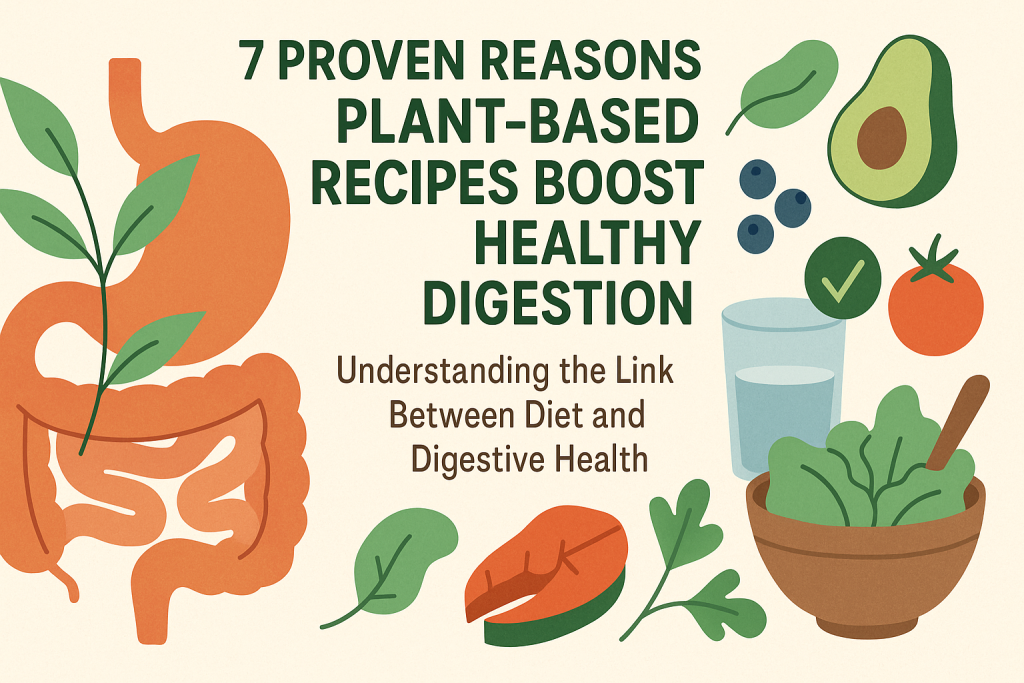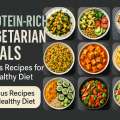Understanding the Link Between Diet and Digestive Health
Many people struggle with digestive discomfort, bloating, or irregularity. What you eat plays a profound role in how well your digestive system operates. Plant-based recipes are quickly gaining popularity, not just for ethical or environmental reasons, but also for their remarkable digestive benefits. This article explores seven science-backed reasons why eating more plants can dramatically improve your gut health and digestive comfort, along with practical advice on integrating these foods into your diet.
From fiber-rich vegetables to probiotic-packed fermented foods, there are countless ways plant-based eating supports a healthy digestive system. Whether you’re new to plant-based cooking or a seasoned vegan, understanding how and why these recipes work can help you make smarter food choices for optimal well-being.
1. High Fiber Content Promotes Regularity
The Power of Dietary Fiber
One of the biggest advantages of plant-based recipes is their natural abundance of dietary fiber. Unlike animal products, which contain zero fiber, fruits, vegetables, whole grains, beans, and nuts are loaded with both soluble and insoluble fiber. These fibers play distinct roles:
- Soluble fiber absorbs water, forming a gel-like substance that slows digestion and helps regulate blood sugar.
- Insoluble fiber adds bulk to stool and accelerates the movement of food through your digestive tract, preventing constipation.
Statistics and Expert Insight
According to the USDA, most Americans consume only about 15 grams of fiber daily, far below the recommended 25-38 grams. A plant-based diet naturally helps you meet these goals, which can lead to smoother bowel movements, reduced constipation, and a lower risk of digestive diseases like diverticulosis.
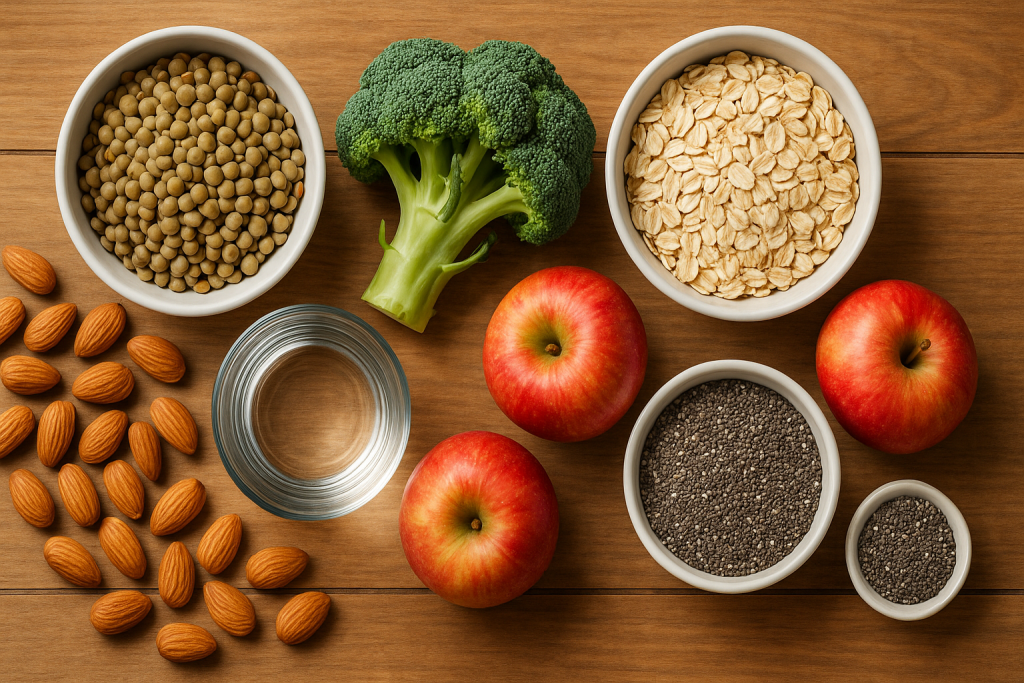
2. Plant-Based Foods Support Healthy Gut Bacteria
The Gut Microbiome Connection
Your digestive tract is home to trillions of bacteria—collectively known as the gut microbiome. Plant-based recipes contain prebiotics (special kinds of fiber) that feed beneficial gut bacteria. A diverse and balanced gut microbiome is linked to improved digestion, better immune function, and even improved mood.
Best Plant Prebiotics
- Onions, garlic, and leeks
- Bananas
- Asparagus and artichokes
- Oats and barley
- Legumes
Adding these foods into your daily meals can nourish your gut flora and promote a healthier digestive environment.
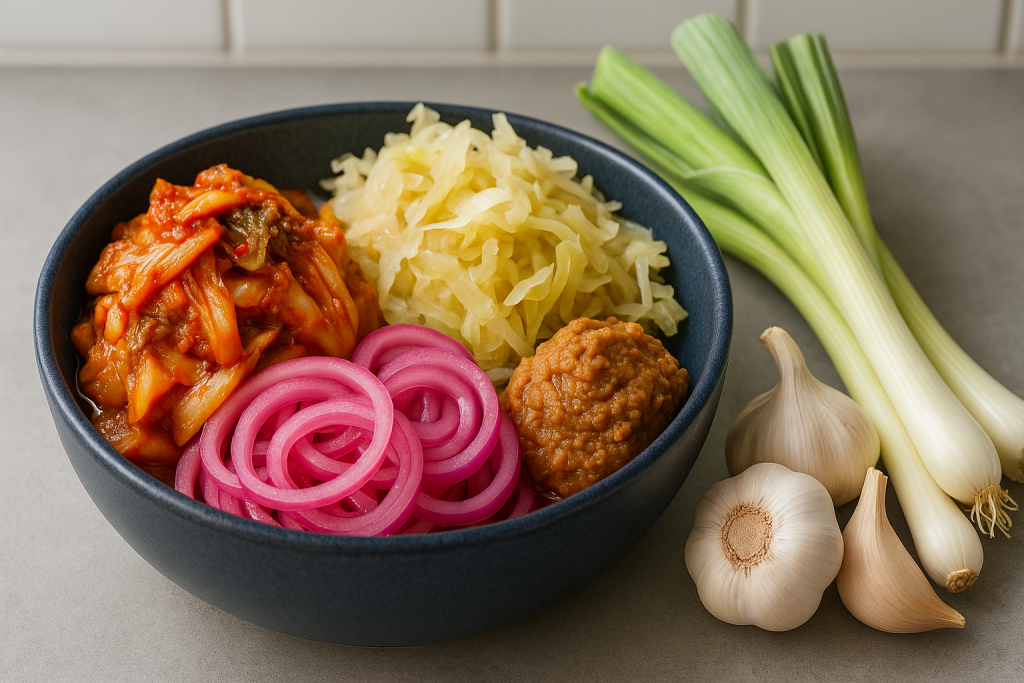
3. Lower Saturated Fats Mean Less Digestive Discomfort
The Downside of Heavy, Fat-Laden Meals
Animal-based diets are often high in saturated fats, which can slow digestion and lead to indigestion, bloating, or acid reflux. Plant-based recipes are typically lower in saturated fat and cholesterol, making them lighter on your digestive system.
Benefits for Digestive Ease
- Reduced risk of gallstones and gallbladder disease
- Lower likelihood of gastroesophageal reflux (GERD)
- Less strain on the liver and pancreas
Choosing plant-based meals means your body can process food more efficiently, leaving you feeling energized rather than sluggish.
4. Anti-Inflammatory Properties Soothe the Digestive Tract
Plant Compounds That Heal
Many plant foods contain anti-inflammatory phytochemicals such as polyphenols, flavonoids, and carotenoids. These compounds help reduce inflammation throughout the body—including the digestive tract. Chronic inflammation is a common thread in digestive disorders such as irritable bowel syndrome (IBS) and Crohn’s disease.
Top Anti-Inflammatory Foods to Include
- Berries (blueberries, strawberries, raspberries)
- Leafy greens (spinach, kale, Swiss chard)
- Turmeric and ginger
- Tomatoes and bell peppers
Regularly eating these foods through plant-based recipes can calm your digestive system and promote long-term gut health.
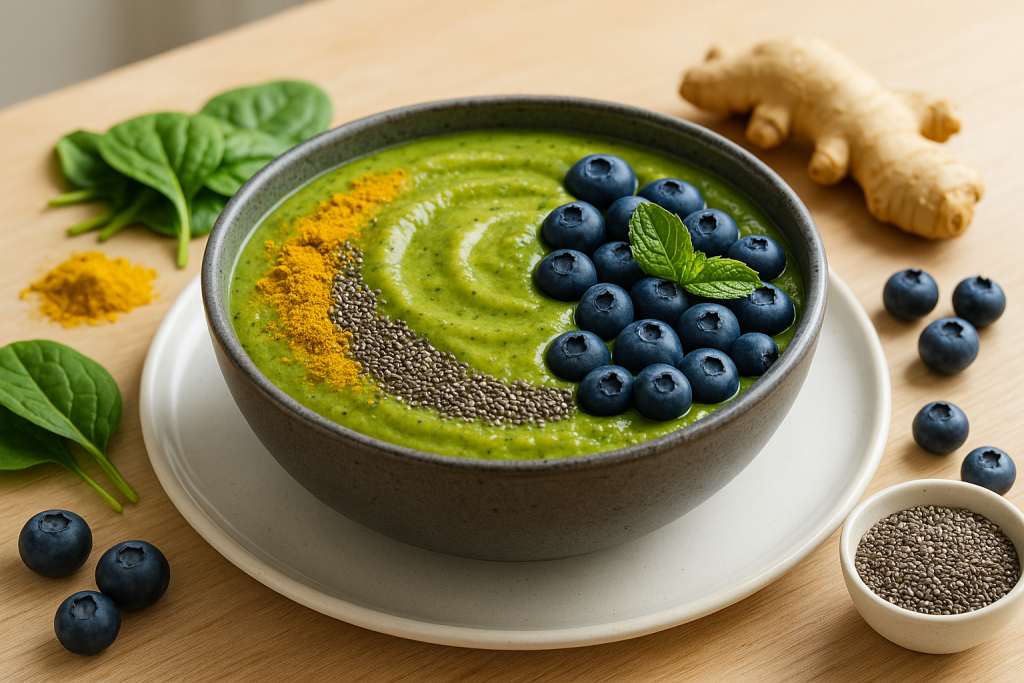
5. Natural Enzymes Aid in Breaking Down Food
The Role of Enzymes in Digestion
Plant-based foods like pineapples, papayas, kiwis, and mangos provide digestive enzymes—natural substances that help break down proteins, fats, and carbohydrates. These enzymes may help alleviate symptoms like bloating or heaviness after meals, especially for those who experience sluggish digestion.
Practical Tips for Enzyme Boost
- Add fresh pineapple to smoothies or salads
- Snack on papaya or mango after meals
- Include raw vegetables in your diet to preserve natural enzymes
By incorporating enzyme-rich foods into your meals, you can support your body’s natural digestive processes.
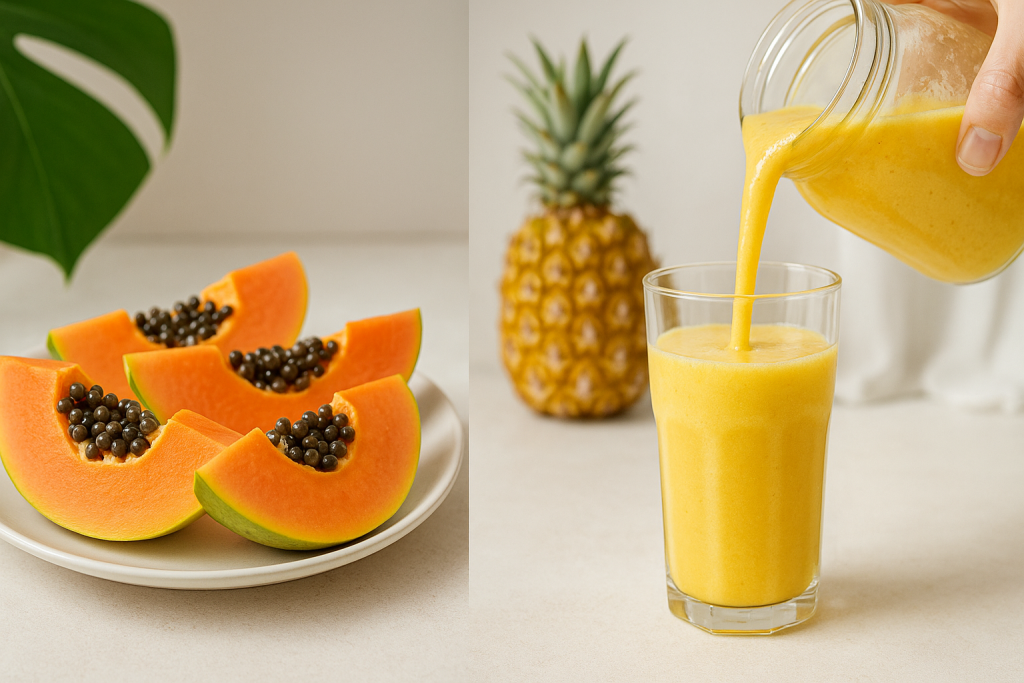
6. Hydration From Plant Foods Eases Digestion
Water Content in Fruits and Vegetables
Many plant-based recipes emphasize water-rich foods like cucumbers, lettuce, tomatoes, celery, and watermelon. These foods help to keep the digestive tract hydrated and moving smoothly. Adequate hydration is essential for breaking down food and absorbing nutrients efficiently.
Why Hydration Matters for Digestion
- Prevents constipation by softening stool
- Aids in nutrient absorption and waste elimination
- Supports healthy production of digestive juices
Eating a variety of fresh fruits and vegetables with high water content is a simple way to optimize your digestive health.
7. Plant-Based Recipes Reduce Digestive Irritants
Less Processed, More Natural
Plant-based cooking tends to use whole foods and avoid heavily processed ingredients, artificial additives, and preservatives—common triggers for digestive distress. By focusing on real, natural foods, you can minimize exposure to irritants that may cause bloating, gas, or intestinal discomfort.
Common Irritants to Avoid
- Artificial sweeteners (often found in diet products)
- Excessive sodium and flavor enhancers
- Certain dairy products (lactose intolerance is common)
- Processed meats with preservatives
Switching to a plant-based approach can help individuals with sensitive digestive systems feel better and reduce flare-ups.
How to Start a Plant-Based Diet for Better Digestion
Simple Tips for a Smooth Transition
Making the shift to more plant-based meals doesn’t have to be overwhelming. Start by incorporating one plant-based meal per day, such as a hearty vegetable stew or a bean salad. Gradually experiment with new ingredients and global plant-based cuisines for variety and excitement.
Sample Plant-Based Recipes for Digestive Health
- Lentil and vegetable soup – packed with fiber and prebiotics
- Overnight oats with berries – oats support gut bacteria and berries are anti-inflammatory
- Chickpea and quinoa bowl – a protein-rich, high-fiber option
- Fermented foods like kimchi or sauerkraut as a side
Remember, listening to your body and making gradual changes will help your digestive system adjust comfortably.
Conclusion: Embrace Plant-Based Eating for Optimal Digestive Wellness
The evidence is clear: plant-based recipes offer multiple digestive benefits, from increased fiber intake and better gut bacteria to fewer irritants and more hydration. By making whole, plant foods the foundation of your diet, you support not only your digestive system but your overall health and vitality. Begin your journey with small, delicious changes—your gut will thank you!
